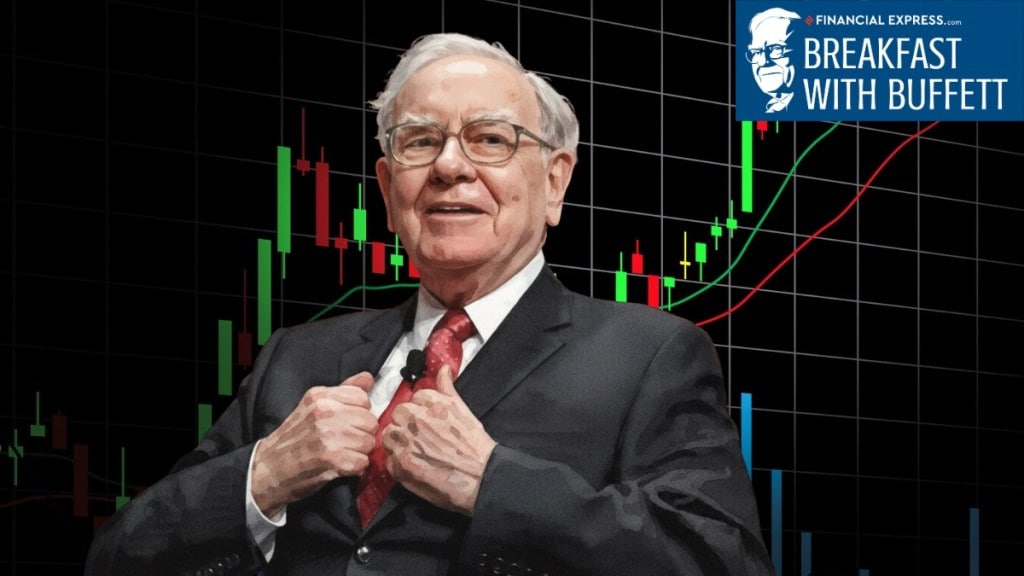Everywhere I look these days, I see the F&O mania.
Training workshops in hotel halls, “learn to trade” webinars promising easy profits, and ads showing smiling traders on their laptops. Social media is flooded with reels of people making lakhs in minutes.
It feels like the new gold rush. Everyone wants quick money and fast success.
But I keep wondering, would investors like Warren Buffett approve of this?
Would the man who built his fortune one patient decision at a time be comfortable with a generation chasing wealth through leveraged trades?
Buffett once called derivatives “financial weapons of mass destruction.”
If he were watching India’s markets today, he would probably see that warning playing out in real time.
The Warning Buffett Gave, And India Ignored
Two decades ago, Buffett wrote that derivatives are “time bombs” for both investors and the economy. He said they look harmless until they explode. Most people read that line and moved on. But in India today, it feels like we are sitting right next to one of those bombs, pretending it will never go off.
In the last few years, the F&O market has become India’s favourite shortcut to wealth.
Every month, millions of new traders are signing up. The total turnover in derivatives has jumped from ₹217 lakh crore in 2019 to over ₹8,700 lakh crore by 2024. That number is so large that it now exceeds the value of some countries’ GDP in notional terms. (Of course, since then steps have been taken to curb this, but the fact remains that leveraged trading is rampant).
The dream is simple: small money, big returns, fast results. But the reality is brutal.
SEBI’s own data shows that more than nine out of ten retail traders lose money in F&O.
In the last financial year alone, ordinary investors together lost over ₹1 lakh crore.
Think about that. One lakh crore – gone but not in scams or frauds, but in legal, everyday trading.
And yet the craze grows. Workshops sell out. YouTube channels promise “option trading mastery.” Apps make it look easy, one tap and you are in the game.
Yet, no one talks about risk. Everyone talks about reward. It is the same trap Buffett warned about about greed dressed as opportunity.
He once said, “Risk comes from not knowing what you are doing.” That single sentence explains the F&O story in India.
People are trading complex instruments they barely understand. They are betting on price movements they cannot predict, often using borrowed money they cannot afford to lose.
In Buffett’s world, that is not investing. That is gambling with better packaging.
What Buffett Would Tell Young Indian Traders
If Warren Buffett could see the frenzy on Indian social media today, he would probably shake his head in disbelief. He built his fortune by studying businesses, not price charts. He spent decades compounding wealth slowly, not chasing it in one-day trades.
Buffett often says that it is not necessary to do extraordinary things to get extraordinary results. You only need to avoid the big mistakes. F&O trading, for most people, is one of those mistakes. The math simply does not work in your favour.
You are not trading against random amateurs. You are up against institutions, algorithms, and professionals who have spent years building systems designed to profit off volatility.
In that world, the small trader almost always loses. The few who win rarely keep winning for long. SEBI’s study showed that more than 75 percent of loss-making traders continued trading the next year too, hoping to recover. Most only lost more. It becomes a cycle of hope and despair that Buffett would never step into.
His advice would be simple.
- Do not trade what you do not understand.
- Do not use leverage.
- Do not borrow to bet.
- Do not confuse movement with progress.
He would remind us that investing is not about excitement. It is about patience, understanding, and discipline.
The people who truly build wealth are not the ones who post profit screenshots. They are the ones quietly investing in solid companies, staying invested for years, and letting compounding do its work.
Buffett’s career is proof that slow money is often the only real money.
The market rewards those who wait, not those who rush.
India’s F&O boom may look glamorous today, but it is leaving behind millions of small investors who will never recover their losses.
So the next time someone tells you that you can double your money in a day, remember what Buffett said: “It is insane to risk what you have and need for something you do not have and do not need.”
Because in the end, markets always test patience.
Author Note
Note: This article relies on data from fund reports, index history, and public disclosures. We have used our own assumptions for analysis and illustrations.
Parth Parikh has over a decade of experience in finance and research. He currently heads growth and content strategy at Finsire, where he works on investor education initiatives and products like Loan Against Mutual Funds (LAMF) and financial data solutions for banks and fintechs.
The purpose of this article is to share insights, data points, and thought-provoking perspectives on investing. It is not investment advice. If you wish to act on any investment idea, you are strongly advised to consult a qualified advisor. This article is strictly for educational purposes. The views expressed are personal and do not reflect those of my current or past employers.


